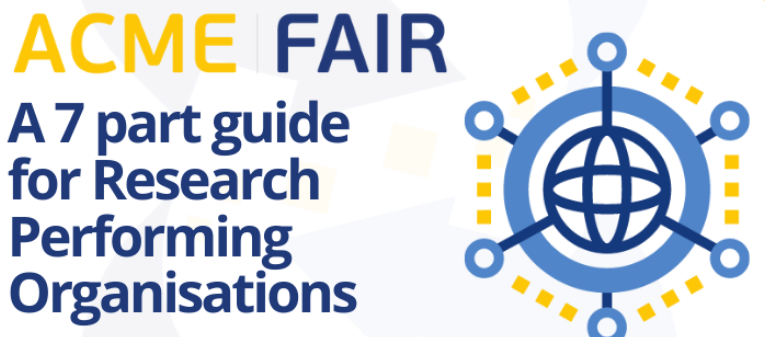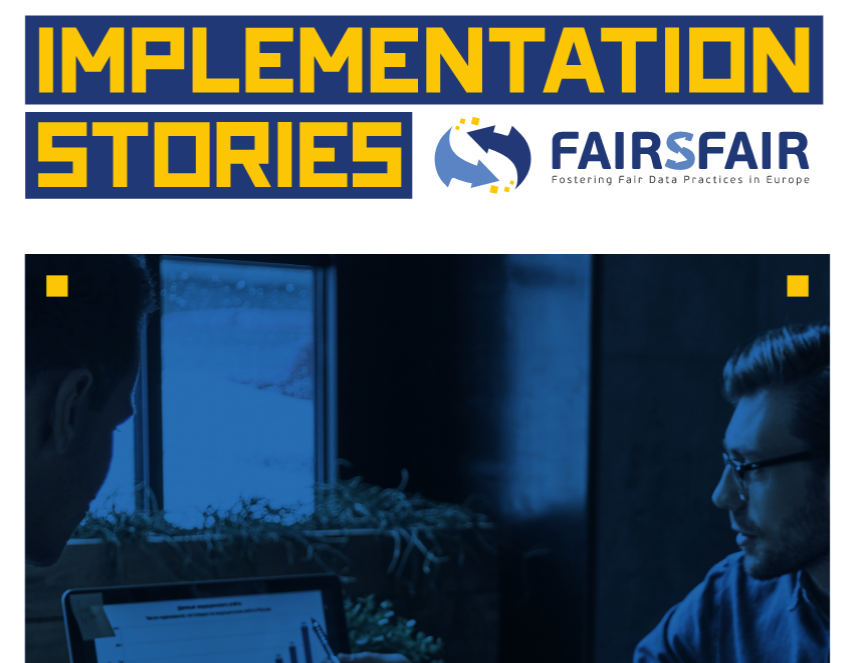Recommendations on practice to support FAIR data principles
Recommendations on practice to support FAIR data principles
Based on the results of the landscape assessment, desk research and interviews D3.2 FAIR Data Practice Analysis provides an analysis of practices to support FAIR data production within a broad selection of research disciplines and research data repositories. D3.4 Recommendations on Practice to support FAIR Data Principles is a set of practical recommendations on making data FAIR and is aimed at research communities and data stewards. The recommendations are grouped under four main ambitions, outlined as themes A - D, with recommendations numbered accordingly. Each recommendation concludes with the summary of actions for various stakeholder groups.
- Theme A: Develop and implement data sharing and interoperability frameworks
-
A1: Describe research outputs using agreed terminologies and metadata standards to make data FAIR
A2: Build a culture of data citation - Theme B: Ensure data management is supported by data management plans (DMPs)
-
B1: Formalise and support appropriate data management plans (DMPs) for FAIR data
B2: Develop roadmaps, guidance and workflows for machine-actionable data management plans (DMP) to inform FAIR data stewardship - Theme C: Develop professional support for FAIR data
-
C1: Define and manage FAIR support costs and resources
C2: Develop and implement models for coordinating and supporting data stewards and research software engineers
C3: Develop and implement terminology for competence centres to annotate and retrieve training materials on enabling FAIR
C4: Develop and implement a self-assessment framework for Research Infrastructures, institutions, and other FAIR competence centres - Theme D: Ensure trusted curation of data
-
D1: Develop and implement guidance and support for selection of appropriate trusted digital repositories (TDRs)
D2: Develop and implement guidance and support for making sensitive data FAIR for reuse
Resources for Research Performing Organisations
Framework for assessing capability maturity and engagement with FAIR-enabling practice (ACME-FAIR)
Our ACME-FAIR guides helps research performing organisations to self-assess how well they are enabling researchers, and the professional staff who support them, to put the FAIR data principles into practice. The framework is released as seven thematic guides, each one dealing with a key aspect of enabling FAIR practice. ACME-FAIR thematic guides:

Implementation Stories
Our collection of Implementation Stories share real-life examples of approaches taken by data support actors in one or more Research Performing Organisation or Research Data Infrastructure to help researchers to produce or reuse FAIR data, either directly or by assisting professional support staff.
A blank Implementation Story template is available for anyone who wishes to adopt this approach to create and share their own implementation stories.

Guidance
Additional guidance has been developed to complement selected ACME-FAIR themes.
- FAIR-Aware Additional guidance to the Science Europe DMP assessment rubric. This Supporting annotated version of the Science Europe DMP assessment rubric offers additional guidance on FAIR for data stewards and others using this rubric to provide feedback to researchers developing data management plans (DMPs).

Survey on organisational models for data stewardship
We worked with the RDA Professionalising Data Stewardship Interest Group to design a survey of the data stewardship community, which was run by the IG at the end of 2021. The report is in expected to be released before the 19th RDA Plenary, and will offer a valuable snapshot of the approaches currently being taken to deliver support for researchers in data stewardship.

Get involved!
- Share examples of good practice through our Implementation Stories. To share a story, please get in touch
- Join the FAIR Data Forum to network with your peers
- Participate in our Data Stewardship training
Further reading
- D3.2 FAIR Data Practice Analysis provides an analysis of practices to support FAIR data production within a broad selection of research disciplines and research data repositories.
- D3.4 Recommendations on Practice to support FAIR Data Principles is a set of practical recommendations on making data FAIR and is aimed at research communities and data stewards. The recommendations are grouped under four main ambitions, outlined as themes A - D, with recommendations numbered accordingly. Each recommendation concludes with the summary of actions for various stakeholder groups.
- Drawing on the open consultation results, desk research and interviews D6.1 Overview of needs for competence centres provides an overview of requirements for competence centres in general and a core competence centre for FAIR data stewardship.
